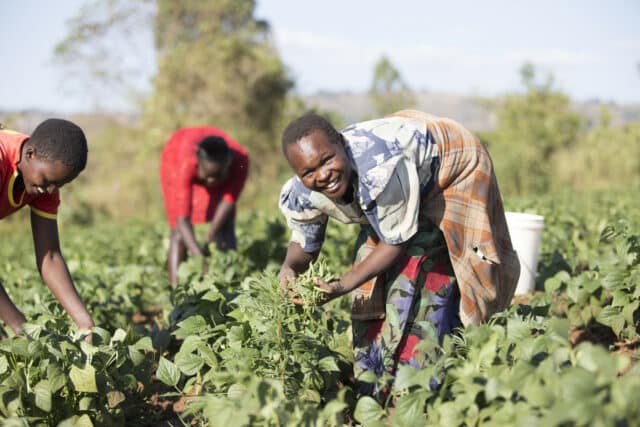Our work
Our programmes
Browse our programmes to learn more about the innovative ways we're partnering with farmers to grow a greener future.
Filter by:
Active
Youth empowerment project
Running since
2023
Country
Uganda
Target reach
500
Key focus areas
Boost productivity
Boost youth employment
Support businesses
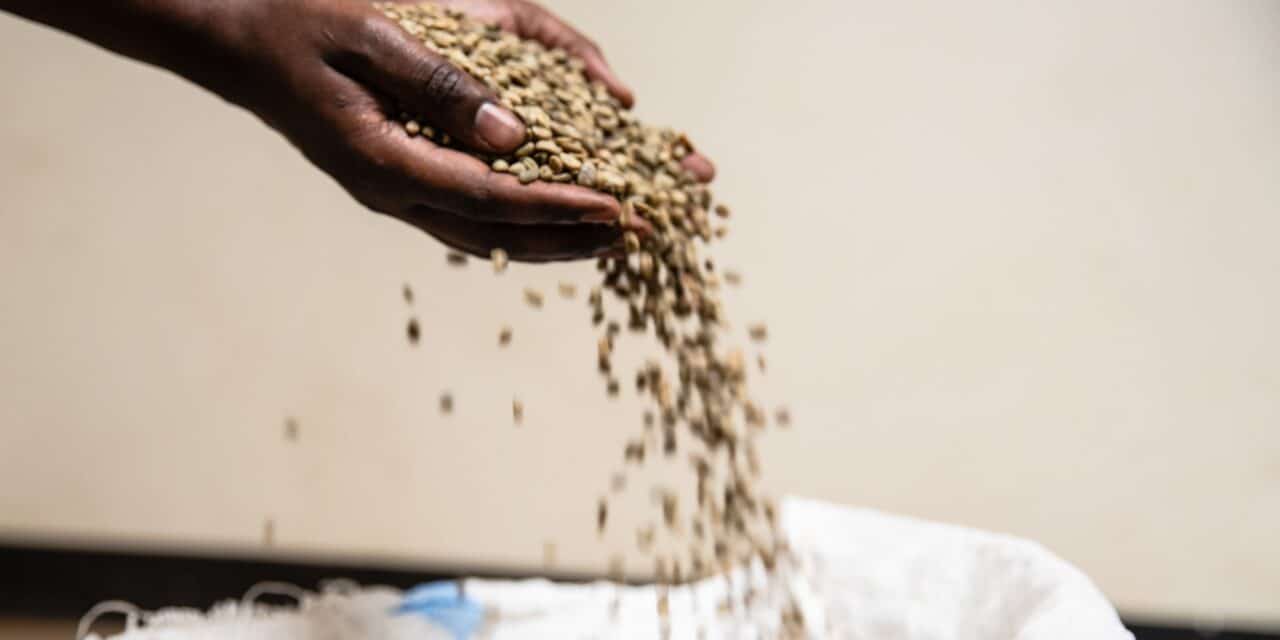
Youth empowerment project
Running since
2023
Country
Uganda
Target reach
500
Key focus areas
Boost productivity
Boost youth employment
Support businesses
Active
Youth empowerment project
The Youth empowerment project (YEP) aims to improve employment opportunities and income for 500 young people in southwestern Uganda by increasing productivity along the coffee, honey, poultry and horticulture value chains.
We’re fuelling productivity by setting up value addition and business incubation centres through Youth Innovation Hubs Africa to help young people launch business ventures along these value chains.
To ensure these young entrepreneurs receive the support they need to become self-sustaining, we’re also training 50 women and young people to become self-employed local business agents who can offer technical advice on selected enterprises, run training workshops and help facilitate access to supplies, land and technology.
Running since
2023
Country
Uganda
Target reach
500
Key focus areas
Boost productivity
Boost youth employment
Support businesses
Active
CASCADE
Running since
2024
Country
Uganda
Target reach
14,500
Key focus areas
Boost productivity
Empower women
Increase food security and nutrition
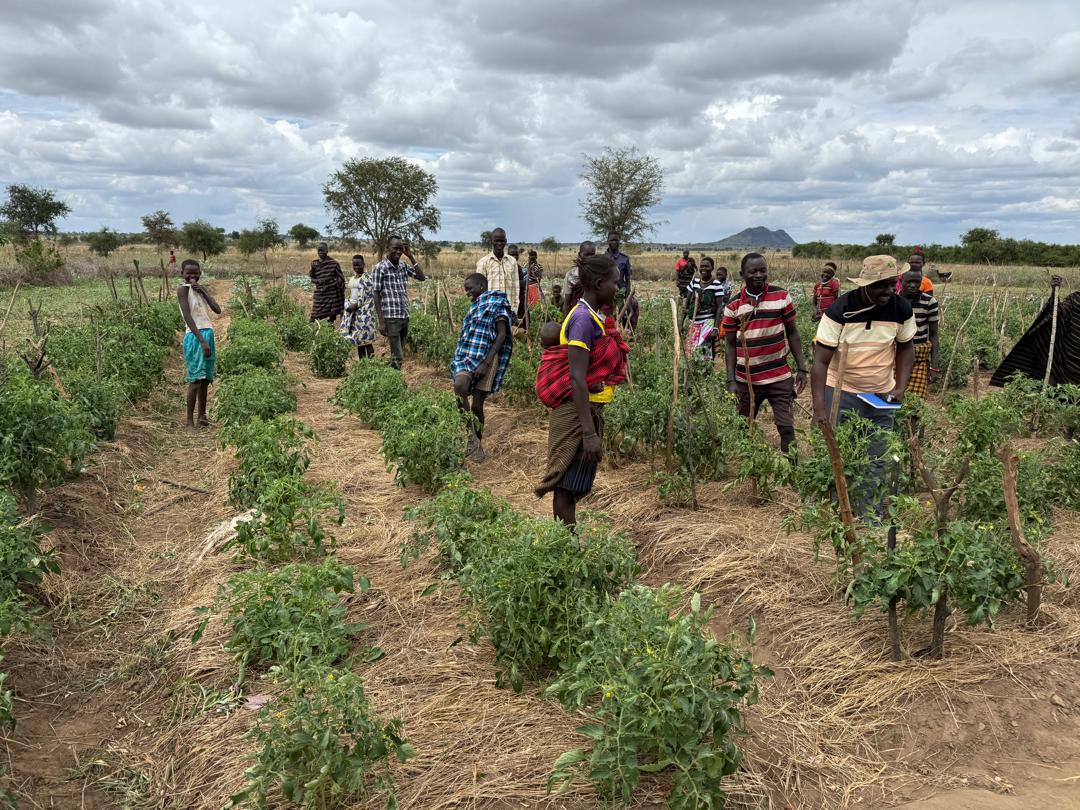
CASCADE
Running since
2024
Country
Uganda
Target reach
14,500
Key focus areas
Boost productivity
Empower women
Increase food security and nutrition
Active
CASCADE
With funding from the Dutch Government, Farm Africa is working in partnership with CARE’s CASCADE programme to put women in eastern Uganda in the driving seat of improving the diets of their young children and themselves, even in the face of climate shocks.
In Uganda’s Karamoja sub-region, poverty and chronic malnutrition is widespread, particularly among women and children. Most families eat a limited diet of cereal grains and wild leaves, and there is low awareness about the importance of a balanced diet. These rural communities rely heavily on natural resources, which leaves them vulnerable to frequent climate extremes.
The project supports rural women in four districts (Moroto, Napak, Abim and Kotido) to grow a range of nutritious foods, learn about healthy eating and overcome cultural barriers holding them back.
Running since
2024
Country
Uganda
Target reach
14,500
Key focus areas
Boost productivity
Empower women
Increase food security and nutrition
Complete
Livestock for livelihoods
Running from
2018-2021
Country
Ethiopia
People reached
10,000
Key focus areas
Empower women
Increase access to finance
Increase food security and nutrition
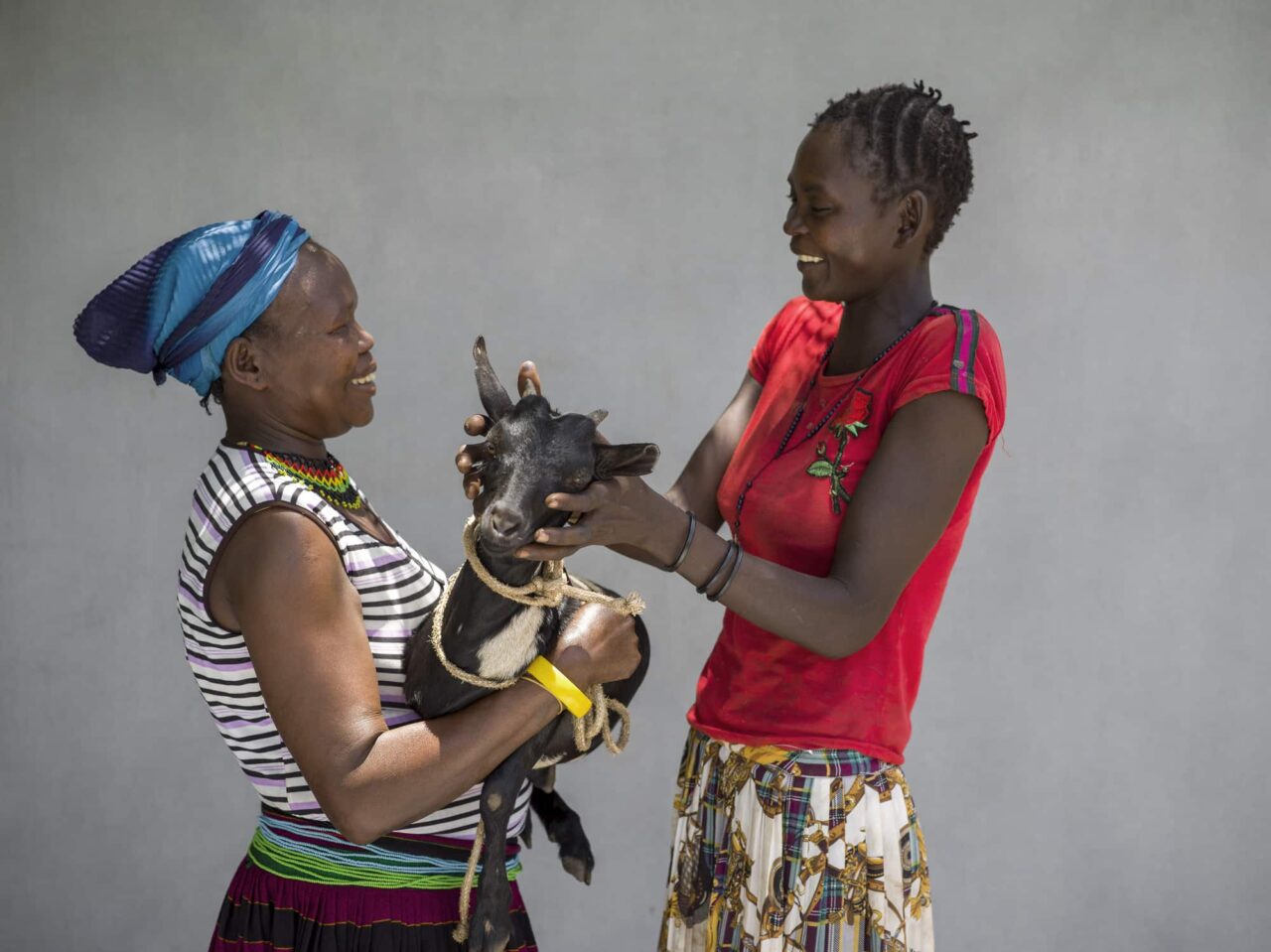
Livestock for livelihoods
Running from
2018-2021
Country
Ethiopia
People reached
10,000
Key focus areas
Empower women
Increase access to finance
Increase food security and nutrition
Complete
Livestock for livelihoods
Farm Africa worked with pastoralist women living in South Omo and Karamoja in Ethiopia and Uganda, supporting them to set up sustainable, small-scale goat-rearing enterprises to help them generate an income and provide their families with a more nutritious diet.
We established Women’s Livestock Groups, through which we provided training in goat rearing and fodder and rangeland management.
We improved women’s access to livestock by setting up a revolving goat scheme, which required each woman who received two goats from Farm Africa to give two does (female goats) to another vulnerable woman once her herd had grown, creating a cycle of improved prosperity.
Running from
2018-2021
Country
Ethiopia
People reached
10,000
Key focus areas
Empower women
Increase access to finance
Increase food security and nutrition
Complete
Sweet potatoes for prosperity
Running from
2017-2019
Country
Uganda
People reached
2,000
Key focus areas
Boost productivity
Increase food security and nutrition
Increase incomes
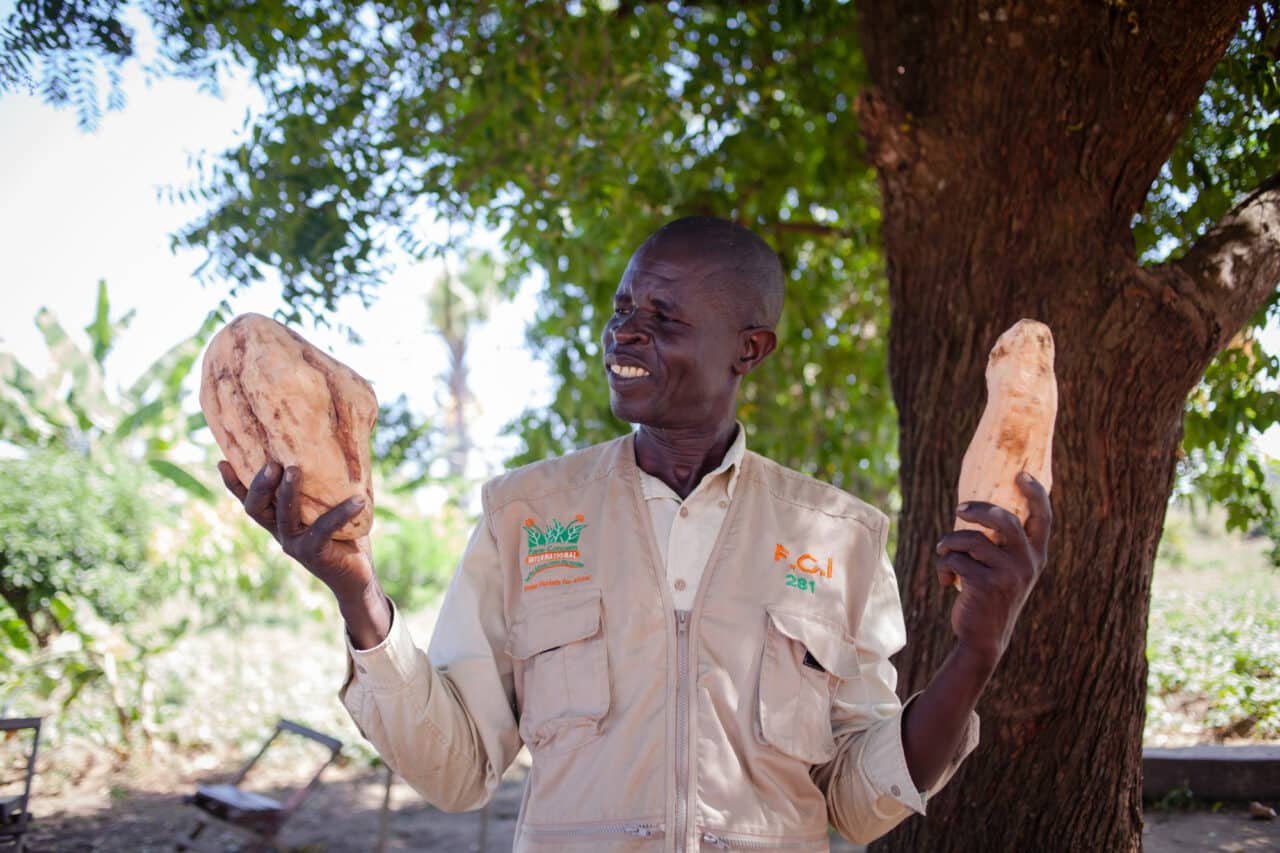
Sweet potatoes for prosperity
Running from
2017-2019
Country
Uganda
People reached
2,000
Key focus areas
Boost productivity
Increase food security and nutrition
Increase incomes
Complete
Sweet potatoes for prosperity
Working in partnership with Soroti Sweet Potato Producers Association (SOSPPA) and farmers previously trained by Harvest Plus, this project ensured a consistent supply of orange-fleshed sweet potatoes to help fight the effects of vitamin A deficiency.
Running from
2017-2019
Country
Uganda
People reached
2,000
Key focus areas
Boost productivity
Increase food security and nutrition
Increase incomes
Complete
Increasing market-orientated production of Arabica coffee together
Running from
2021-2023
Country
Uganda
People reached
40,034
Key focus areas
Boost productivity
Boost youth employment
Connect farmers to markets
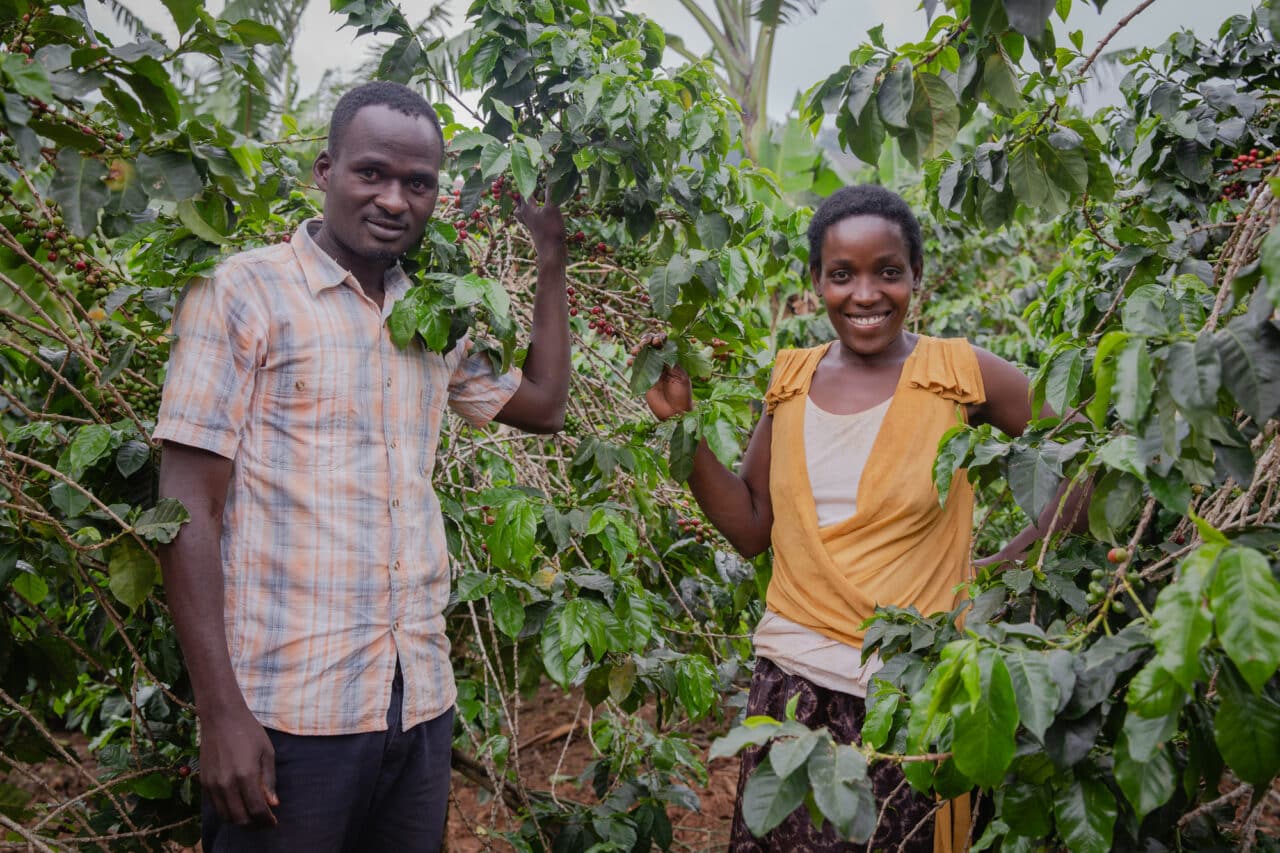
Increasing market-orientated production of Arabica coffee together
Running from
2021-2023
Country
Uganda
People reached
40,034
Key focus areas
Boost productivity
Boost youth employment
Connect farmers to markets
Complete
Increasing market-orientated production of Arabica coffee together
This project helped western Uganda upgrade its coffee value chain with a focus on delivering increased volumes of sustainably produced, quality Arabica coffee to premium export markets and including smallholder farmers in the value chain.
Farm Africa worked with the Ugandan coffee processor and exporter, UGACOF, to reduce losses during production, harvest and post-harvest handling; expand marketing opportunities for smallholder farmers and help them diversify into higher value export markets.
The project helped farmers deliver a consistent supply of quality coffee cherries to UGACOF who marketed the produce to European Union, and African, Caribbean and Pacific roasters.
Running from
2021-2023
Country
Uganda
People reached
40,034
Key focus areas
Boost productivity
Boost youth employment
Connect farmers to markets
Complete
Commercialising chilli production
Running from
2018-2021
Country
Uganda
People reached
17,000
Key focus areas
Connect farmers to markets
Increase access to finance
Support businesses
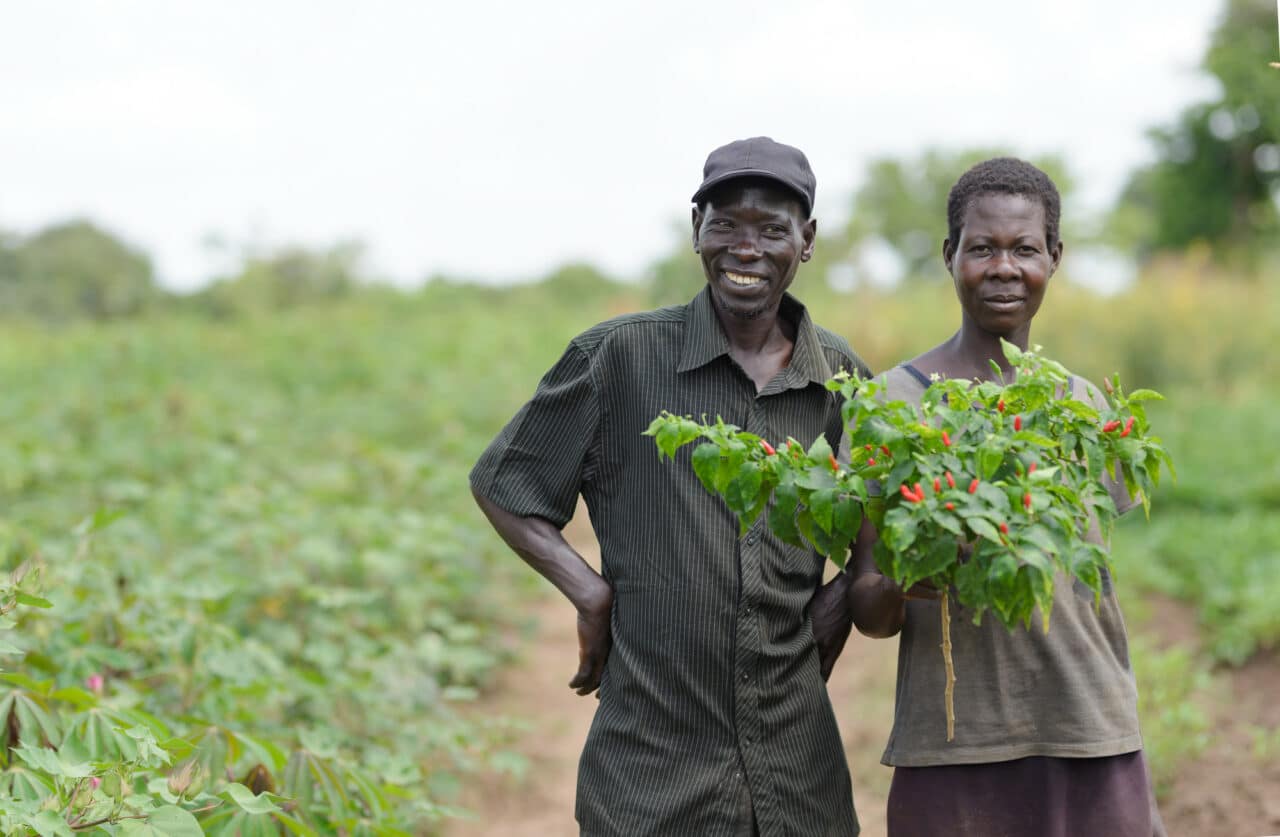
Commercialising chilli production
Running from
2018-2021
Country
Uganda
People reached
17,000
Key focus areas
Connect farmers to markets
Increase access to finance
Support businesses
Complete
Commercialising chilli production
Working with 17,000 farmers and selling 44% of all exported Uganda chillies in 2017, Northeast Chilli Producers Association (NECPA) is a key player in the chilli industry. Farm Africa helped NECPA adopt a more market-orientated business model, which opened up new export opportunities to chilli farmers. This involved helping chilli growers gain access to quality seeds and equipment, increase their yields and meet international buyers’ quality standards.
Running from
2018-2021
Country
Uganda
People reached
17,000
Key focus areas
Connect farmers to markets
Increase access to finance
Support businesses

